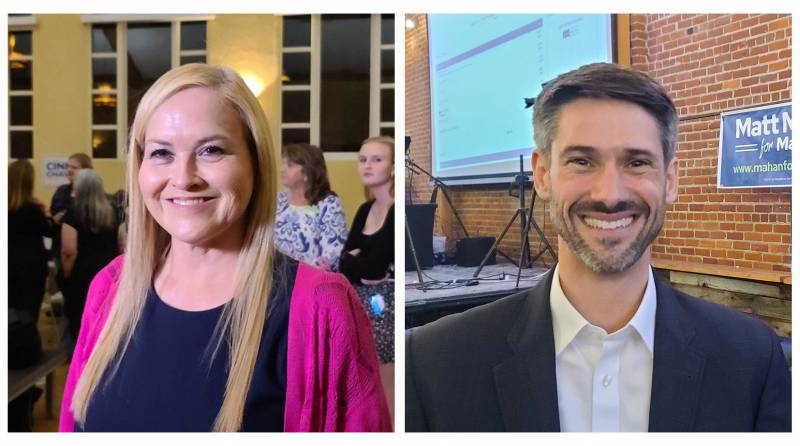Mahan, meanwhile, has promised to shake up city government, if elected, with a plan to tie councilmember and department-head raises to metrics measuring progress on reducing homelessness and crime. After co-founding Brigade, an app for civic engagement and political debate, Mahan was elected to the city council in 2020, representing Almaden Valley. As a mayoral candidate, he has vowed to reduce development fees and avoid levying new taxes on businesses as part of his effort to bring more jobs downtown.
“I think voters want real change, and I think they want accountability for results,” Mahan said. “And this November, they’re going to get a real choice between [me and] someone who’s been in the public eye for 30 years, and elected office for nearly 20, and has pushed much of the same policies that have us where we are today.”
Mahan’s pro-business platform puts him and Chavez on opposite sides of the business-labor divide that has long framed politics in the city. Before her election to the board of supervisors, Chavez ran the powerful South Bay AFL-CIO Labor Council.
For the most part, that divide steered the millions of dollars of outside spending that poured into the race. While Chavez and Mahan’s campaigns each spent north of $900,000, independent expenditure committees backed by the Labor Council and the San Jose Police Officers’ Association spent a combined $680,620 to bolster Chavez’s candidacy. Local business leader Carl Guardino and the San Francisco 49ers also threw their weight behind Chavez, spending hundreds of thousands of dollars to air digital and cable ads backing the supervisor.
Meanwhile, a super PAC created by current mayor Sam Liccardo brought together tech and developer dollars to spend $360,373 in support of Mahan.
Those resources helped Chavez and Mahan outpace Dev Davis and Raul Peralez, the other two elected officials in the field.
“They were able to do a lot of mailers and a lot more ads because of that outside money,” Davis said on Tuesday night. “And so it definitely gets in front of people’s eyes much more.”
Davis, whose District 6 council seat centers on Willow Glen, ran on a platform of what she called “tough love,” with a pledge to ban homeless encampments, staff up the city’s police force and strongly protect single-family zoning. During her tenure, Davis has chided her fellow councilmembers for pursuing legislation that requires gun owners to purchase insurance and allows noncitizens to vote.

